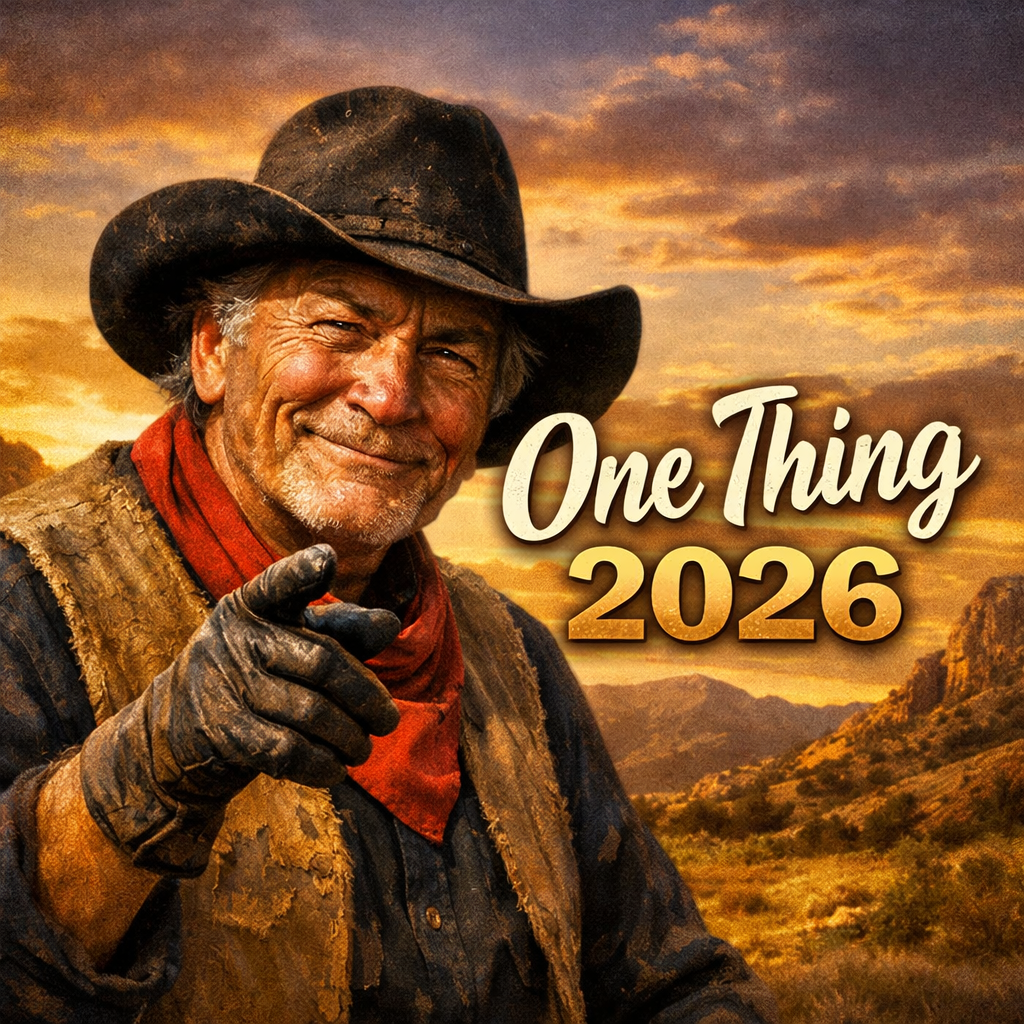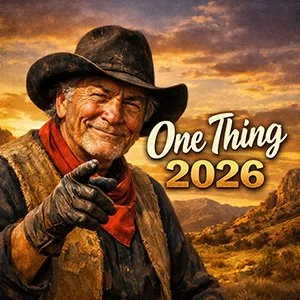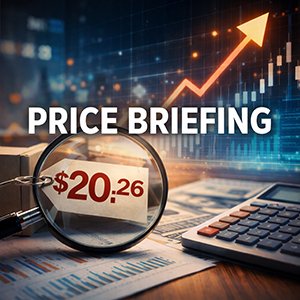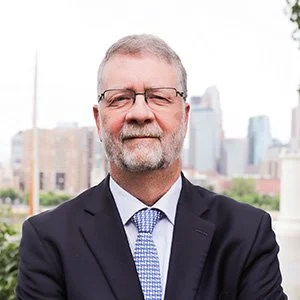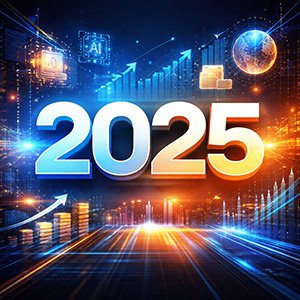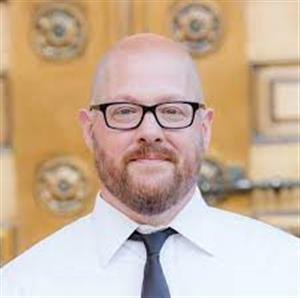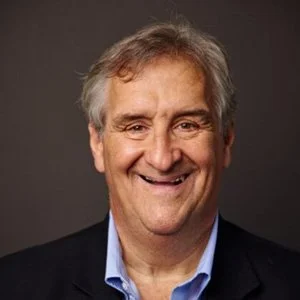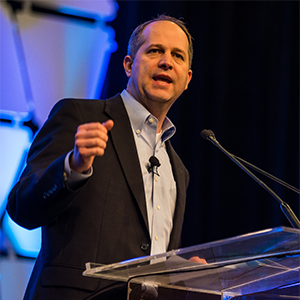Inspired by A.J. Jacobs’ appearance on Russ Roberts’ EconTalk, Ron and Ed have continued their annual tradition of keeping a “One Thing” journal—capturing a single idea each day that sparked insight, curiosity, or reflection. Often it’s a quote; sometimes it’s a question, a concept, or a surprising turn of phrase.
In One Thing 2026, they once again open their journals and share a curated collection of the thoughts that shaped their year. The result may feel delightfully eclectic, but as always, it’s packed with insight—nuggets of wisdom drawn from their reading, listening, and lived experience. Think of it as a guided tour through the ideas that lingered long enough to be written down—and shared.
SHOW NOTES
Segment one
Here is the background from A.J. Jacobs on the “One Thing” journal https://experimentalliving.substack.com/p/just-one-thing?utm_source=profile&utm_medium=reader2
Bryan Caplan on the Myth of the Rational Voter https://www.econtalk.org/caplan-on-the-myth-of-the-rational-voter/
There are no rules, only consequences. https://davidafoster.com/there-are-no-rules-only-consequences/
Ron quoted Robert Heinlein quite a few times on the show today. Here is more background https://en.wikipedia.org/wiki/Robert_A._Heinlein
From Joe Pine: As my friend and colleague Stan Hustad puts it, “If a business doesn’t help people flourish, it’s a racket.” https://transformationsbook.substack.com/p/the-true-purpose-of-business
Today I learned that omphaloskepsis is the formal term for "navel-gazing," referring to the act of meditating or fixating on one's own navel.
Segment two
We formally welcomed Rippling to the family here at The Soul of Enterprise today. Employees get more done with Rippling……and they also like cats (trust me…click X profile link) @rippling #ad
When it is not necessary to change, it is necessary not to change. —Lucius Cary, Lord Falkland
“Demosclerosis,” in Jonathan Rauch's diagnosis, is “government's progressive loss of the ability to adapt.” https://www.commentary.org/articles/tod-lindberg/demosclerosis-by-jonathan-rauch/
“Countries are well cultivated, not as they are fertile, but as they are free.” – Montesquieu on the essence of freedom, The Spirit Of the Laws, 1748. From the series Great ideas of Western Man. https://americanart.si.edu/artwork/countries-are-well-cultivated-not-they-are-fertile-they-are-free-montesquieu-essence
Canada’s immigration points system, primarily the Comprehensive Ranking System (CRS) for Express Entry, ranks skilled worker candidates based on age, education, language (English/French), and work experience. https://www.canada.ca/en/immigration-refugees-citizenship/services/immigrate-canada/express-entry/check-score.html
May the road rise to meet you, May the wind be always at your back. May the sun shine warm upon your face, The rains fall soft upon your fields. And until we meet again, May God hold you in the palm of his hand. https://barrettfunerals.com.au/readings-prayers-poems/an-irish-blessing/
Segment three
King Arthur: “And I’m too young and too old. Too old not to be uncertain of fears that may be phantom, and too young not to be tormented by them.” https://www.hjkeen.net/halqn/camelot.htm
“He who is unfit to serve his fellow citizens wants to rule them.” ― Ludwig von Mises
Approximately half of all improvement in global human living standards over the past 10,000 years has occurred since 1990. Source: https://www.worldbank.org/en/news/immersive-story/2018/10/17/going-above-and-beyond-to-end-poverty-new-ways-of-measuring-poverty-shed-new-light-on-the-challenges-ahead
John W. Tukey’s 1962 insight, "Far better an approximate answer to the right question, which is often vague, than an exact answer to the wrong question, which can always be made precise”
Brandolini's law: “The amount of energy needed to refute bullshit is an order of magnitude bigger than that needed to produce it.” https://en.wikipedia.org/wiki/Brandolini%27s_law
Segment four
The last line In Salman Rushdie’s Victory City (2023): “Nothing endures, but nothing is meaningless either”
"We want radical change in search of stability" —Peter Block
"The only free cheese is in the mouse trap" (Ukrainian: Безкоштовний сир буває тільки в мишоловці) is a common Eastern European proverb, heavily used in Ukraine, meaning that nothing of value is truly free, and too-good-to-be-true offers often hide dangerous traps or hidden costs. It is the regional equivalent of "there's no such thing as a free lunch".
"Does anyone have any questions for my answers?" —former U.S. Secretary of State Henry Kissinger
“Be the person the room who wants to make things easier” —unattributed
Bonus Content is Available As Well
Did you know that each week after our live show, Ron and Ed take to the microphone for a bonus show? Typically, this bonus show is an extension of the live show topic (sometimes even with the same guest) and a few other pieces of news, current events, or things that have caught our attention.
Click the “FANATIC” image to learn more about pricing and member benefits.

